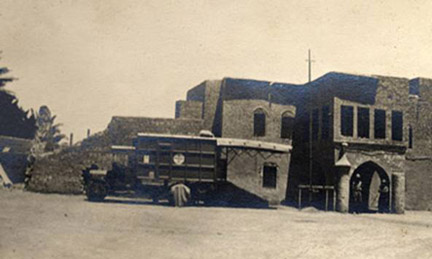
British headquarters in Ramadi, 1918
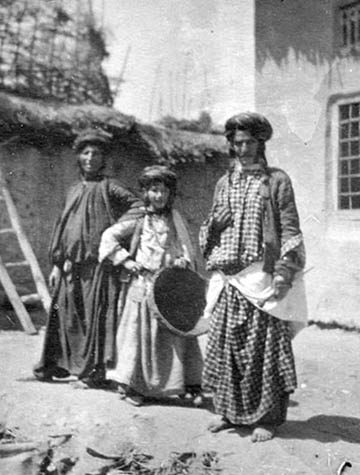
Children in Ramadi, Iraq street, 1918
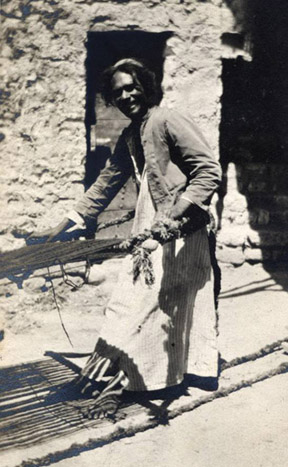
Jewish citizen of Ramadi, Iraq, ca. 1918

British headquarters in Ramadi, 1918

Children in Ramadi, Iraq street, 1918

Jewish citizen of Ramadi, Iraq, ca. 1918
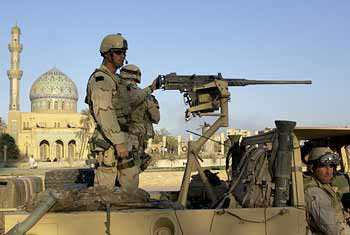
[Webshaykh’s Note: In the current online issue of Foreign Policy there is an excellent essay by Robert Pape on the post 9/11 missteps and how a faulty narrative has not only bogged us down into two unwinnable wars, but also not made us safer from terrorism. Click here for the full article; I excerpt the ending here.]
by Robert Pape, Foreign Policy, October 20, 2010
Put differently, adopting the goal of transforming Muslim countries is what created the long-term military occupation of Iraq and Afghanistan. Yes, the United States would almost surely have sought to create a stable order after toppling the regimes in these countries in any case. However, in both, America’s plans quickly went far beyond merely changing leaders or ruling parties; only by creating Western-style democracies in the Muslim world could Americans defeat terrorism once and for all.
There’s just one problem: We now know that this narrative is not true.
New research provides strong evidence that suicide terrorism such as that of 9/11 is particularly sensitive to foreign military occupation, and not Islamic fundamentalism or any ideology independent of this crucial circumstance. Continue reading It’s the Occupation, Stupid
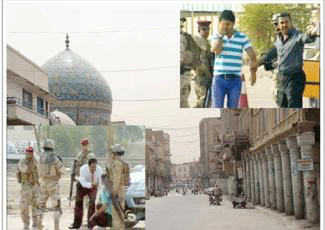
Scene from the show
Laugh! There is a Bomb in your Car
by Sinan Antoon, al-Jadaliyya.com, September 11, 2010
Ramadan is a very special time of year for Muslims and it is impossible to overestimate its socio-cultural importance. Additional time and effort are invested in its daily rituals and practices. Familial and social bonds are augmented and celebrated. Traditional games used to be an important facet of the month’s celebratory and festive mood culminating in the feast marking the month’s end. While these games are still popular and are still played in many parts of the Islamicate world, they have been largely eclipsed by visual entertainment. Thus, Ramadan is the month to watch TV and follow the new shows and soap operas. It is the month with the highest rates of viewership as families and friends gather around TVs. Stations and satellite channels invest heavily in their Ramadan productions. It is also the perfect time of year to take the political and cultural pulse. For Iraqis, Ramadan has been more of a challenge this year than it usually is. The country is still without a government after more than five months of fruitless negotiations. Despite claims to the contrary, the government has failed miserably in providing security for its citizens as suicide attacks continue. Continue reading When the humor bombs …
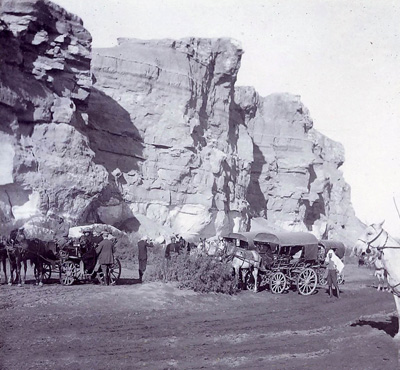
Baghdad-Aleppo road at the start of the 20th century
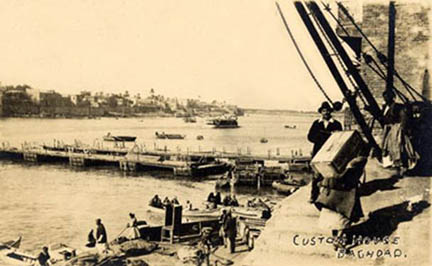
Ottoman era Customs House, Baghdad
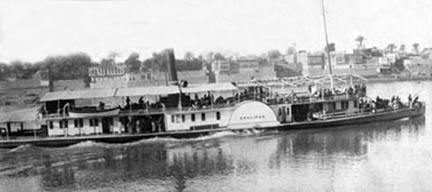
River boat cruising by Baghdad, 1918
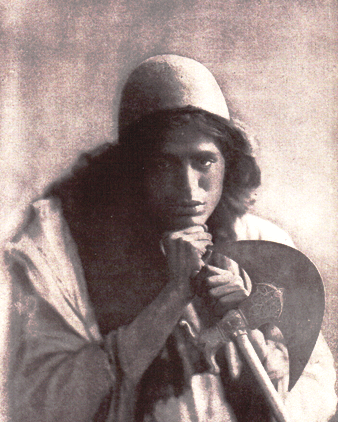
One of my prize collections, inherited in part from my grandparents, is an almost complete run of National Geographic Magazine from 1907 to the present. Periodically I pull an issue off the shelf at random and browse. I recently opened up the February, 1917 issue and noticed that near the end advertising (as interesting as the articles in many cases) there were several pictures of the Middle East, but not tied to a specific article in the issue. It may be that the publisher needed to add a few pages or else these were pictures that somehow did not make it into an earlier issue. The one that struck me the most is the above portrait on p. 199. It is simply entitled “A Citizen of Baghdad” and no photographer is indicated. It looks to me like there is a scabbard in view, but the man is also holding on to something I cannot make out. I wonder if anyone has any ideas on what the man is wearing and if that is a clue as to his background.

How American Right-Wing Christians Are Waging ‘Spiritual Warfare’ in Northern Iraq
By Michael Reynolds, AlterNet
Posted on July 12, 2010, Printed on July 28, 2010
On a barren hillside outside Sulaymaniyah in southeast Iraqi Kurdistan sits a small compound of buildings clustered behind battered gray and ochre walls. Atop one wall is a large white sign glittering with gold and azure lettering that reads in English and Arabic: Classical School of the Medes. It is one of three new private schools in the region that teach a “Christian worldview,” the handiwork of American evangelicals from Tennessee.
Since the US occupation took hold, American evangelicals have established not only schools, but printing presses, radio stations, women’s centers, bookstores, medical and dental clinics, and churches in northern Iraq, all with the blessings and assistance of the Kurdistan government. Many of these efforts were funded in part by US taxpayer dollars, channeled through Department of Defense construction contracts and State Department grants.
In September 2003, just four months after US forces took down Saddam Hussein’s regime, 350 evangelical pastors and church leaders assembled in Kirkuk, where they were warmly welcomed by Massoud Barzani, president of the Kurdistan Regional Government. At that gathering, George Grant, a leader of Servant Group International, the evangelical organization in Nashville that set up the chain of Christian schools, declared that “Jesus Christ is Lord over all things; He is Lord over every Mullah, every Ayatollah, every Imam, and every Mahdi pretender; He is Lord over the whole of the earth, even Iraq!” Continue reading Go ye into all the war zones
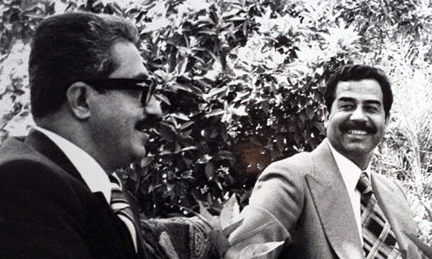
Tariq Aziz with Saddam Hussein before the fall
by Martin Chulov in Baghdad , The Guardian, August 5, 2010
Tariq Aziz is slumped on a tattered brown sofa seat cradling his walking stick and cigarettes, his gaunt face topped, incongruously for a practising Christian, by a Muslim prayer cap. It is perhaps only the familiar black-ringed spectacles that signal to the visitor that this was Iraq’s former face to the world – Saddam Hussein’s right-hand man, his most powerful deputy.
Apart from his captors and lawyers, Aziz, says he has not seen or spoken to a foreigner since the fall of Baghdad. But after years rotating between solitary confinement and a witness box in court, he is now more than ready to speak.
“It’s been seven years and four months that I have been in prison,” he told the Guardian. “But did I commit a crime against any civilian, military or religious man? The answer is no.”
Iraq has been through hell since Aziz was last seen in public, days before Baghdad fell in April 2003, toppling Hussein and the totalitarian Ba’athist regime that Aziz had helped lead for 30 years. Continue reading Tariq Aziz: ‘Britain and the US killed Iraq. I wish I was martyred’
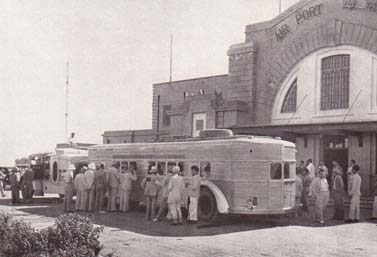
The photograph above, taken by W. Robert Moore, appeared in the National Geographic Magazine December, 1938 issue (p. 732). The caption reads:
THE DESERT-GOING BAGHDAD-DAMASCUS BUS IS AIR-COOLED AND WAS “MADE IN U.S.A.”
Temperature was 111 degrees Fahrenheit when the picture ws taken at Baghdad’s airport, but inside the stainless-steel bus, operated by Nairn Transport Company, it was only 76 degrees. Now, in a few hours, these huge high-speed cars make the trip that once took camels many days.